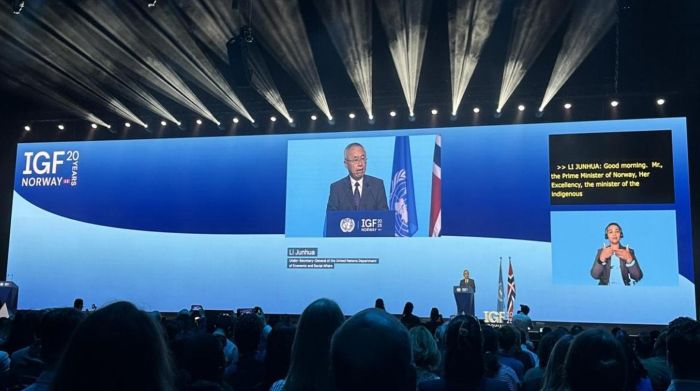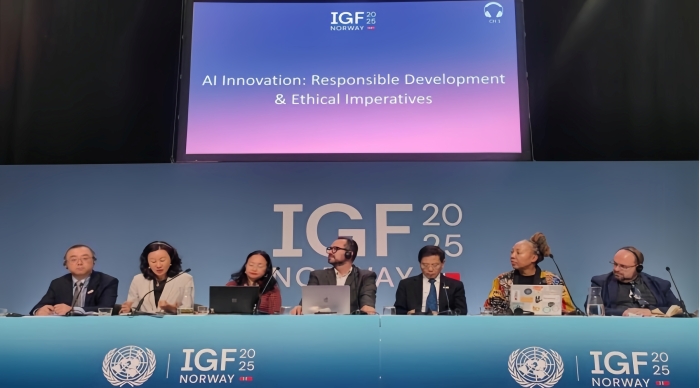From
June 23 to 27, the 20th Internet Governance Forum (IGF 2025) was held in
Lillestrøm, Norway. Under the theme of ‘Building Digital Governance Together,’
the Forum brought together over 10,000 participants from governments, civil
society, the private sector, technical communities, academia, and international
organizations. Among the distinguished video speakers were United Nations (UN)
Secretary-General António Guterres, Prime Minister Jonas Gahr Støre of Norway,
and the International Telecommunication Union (ITU) Secretary-General Doreen
Bogdan-Martin; onsite speeches were delivered by UN Under-Secretary-General Li
Junhua, President Dharambeer Gokhool of Mauritius, and Norwegian Minister of
Digitalisation and Public Governance Karianne Tung, among others. The Forum
featured more than 250 events, including workshops, open forums, and lightning
talks—delving into key issues in global digital governance, with a particular
emphasis on shaping its future as the world marks 20-year review of the World
Summit on the Information Society (WSIS+20).

China
Internet Network Information Center (CNNIC) participated intensively in IGF
2025, maintaining close collaboration with global multi‑stakeholder communities
and proactively amplifying the voice of China on the world stage. During the
workshop titled ‘AI
Innovation: Responsible Development and Ethical Imperatives,’ Dr. Zhang Xiao,
Deputy Director of CNNIC, provided commentary on speakers’ presentations. Her
remarks emphasized three main points: 1) The rapid advancement of artificial
intelligence warrants the establishment of a responsible governance framework
that coordinates both development and regulation. 2) There is an intrinsic link
between AI governance and Internet governance, aligning with the inherent logic
of digital transformation. Governance practices can draw lessons from the
Internet’s governance experience. 3) She advocated for the formulation of an
interoperable international standards framework, exploring common governance
approaches to achieve co‑governance and shared benefits.
As a member of the IGF’s Multistakeholder
Advisory Group (MAG), Dr. Zhang Xiao actively performed her responsibilities,
deeply engaging in topic setting, proposal selection, and speaker nomination
for this year’s Forum, as well as participating in intersessional work within
the IGF Strategy Working Group, the Policy Network on AI (PNAI), and other
bodies. During the Forum, Dr. Zhang Xiao attended several MAG working meetings,
where she took part in in‑depth discussions on the IGF’s future development,
implementation of the “Global Digital Compact,” and WSIS+20 priorities.
CNNIC
has long been committed to participating in IGF, actively promoting
multi‑stakeholder dialogue and cooperation, and contributing Chinese proposals
and experiences. Looking ahead, CNNIC will continue serving as a bridge in the
global Internet governance process, contributing to an open, inclusive, secure,
trustworthy, and sustainable digital era.

Established
in 2006, the IGF is the principal global digital governance platform under the
United Nations framework, and operates on a multistakeholder basis. The MAG,
appointed by the UN Secretary‑General, advises on IGF‑related issues. To ensure
sufficient expertise and experience in guiding IGF through WSIS+20, MAG members
for 2025 were nominated from former MAG members and members of the UN Working
Group on Internet Governance (WGIG).

